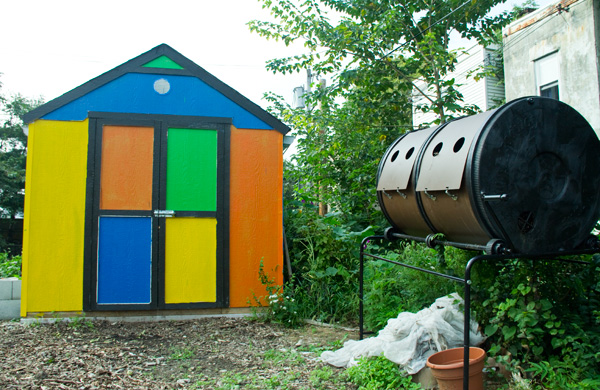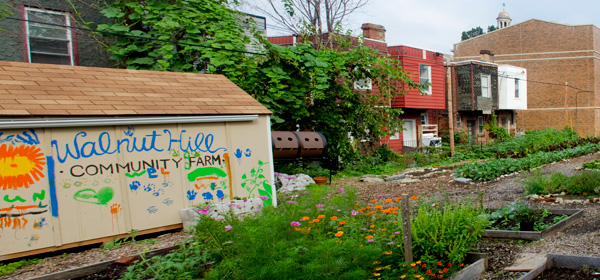 story by nic espositoIn my experience creating urban farms, the conflict I have most often faced is between the desire for high-end craftsmanship and the need to just get the project going. I’ll be the first to admit that the community organizer in me usually errs on the side of the latter. But with the Walnut Hill Community Farm, the Collaborative’s consulting helped Philly Rooted attain this elusive equilibrium.
story by nic espositoIn my experience creating urban farms, the conflict I have most often faced is between the desire for high-end craftsmanship and the need to just get the project going. I’ll be the first to admit that the community organizer in me usually errs on the side of the latter. But with the Walnut Hill Community Farm, the Collaborative’s consulting helped Philly Rooted attain this elusive equilibrium.
I’ll also admit that we weren’t the easiest to work with. By the time Greg Heller of the Enterprise Center Community Development Corporation (the lease holders of the farm site and main structural support for the farm) informed us that he had secured the Collaborative’s support, Philly Rooted had already built eight raised beds, six farm rows and an herb spiral. I vividly remember Collaborative volunteer landscape architect and witty pragmatist Michael Nairn asking, “So, I’m not sure what you need us for?”
 The truth is that we needed them a great deal. It was their advising that helped us fit an urban farm, pocket park and community garden in our third-of-an-acre space. It was their foresight that made us address the drastic slope between the farm and the park by leveling off the land, installing porous pavers and planting an orchard to manage storm water runoff. And it was their diplomacy and innovation that helped us solve the ideological debate over having a fence by suggesting we plant a living fence of blackberries and raspberries.
The truth is that we needed them a great deal. It was their advising that helped us fit an urban farm, pocket park and community garden in our third-of-an-acre space. It was their foresight that made us address the drastic slope between the farm and the park by leveling off the land, installing porous pavers and planting an orchard to manage storm water runoff. And it was their diplomacy and innovation that helped us solve the ideological debate over having a fence by suggesting we plant a living fence of blackberries and raspberries.
The brilliance of the Collaborative structure is that it provides professionals with manageable volunteer commitments and community groups with the high quality consulting their budgets could never afford. Thanks to the Collaborative, Walnut Hill boasts a safe, space-efficient and creative design that takes into account the needs of the land and the community. The result is a utilitarian aesthetic I feel every day I step onto the farm.


